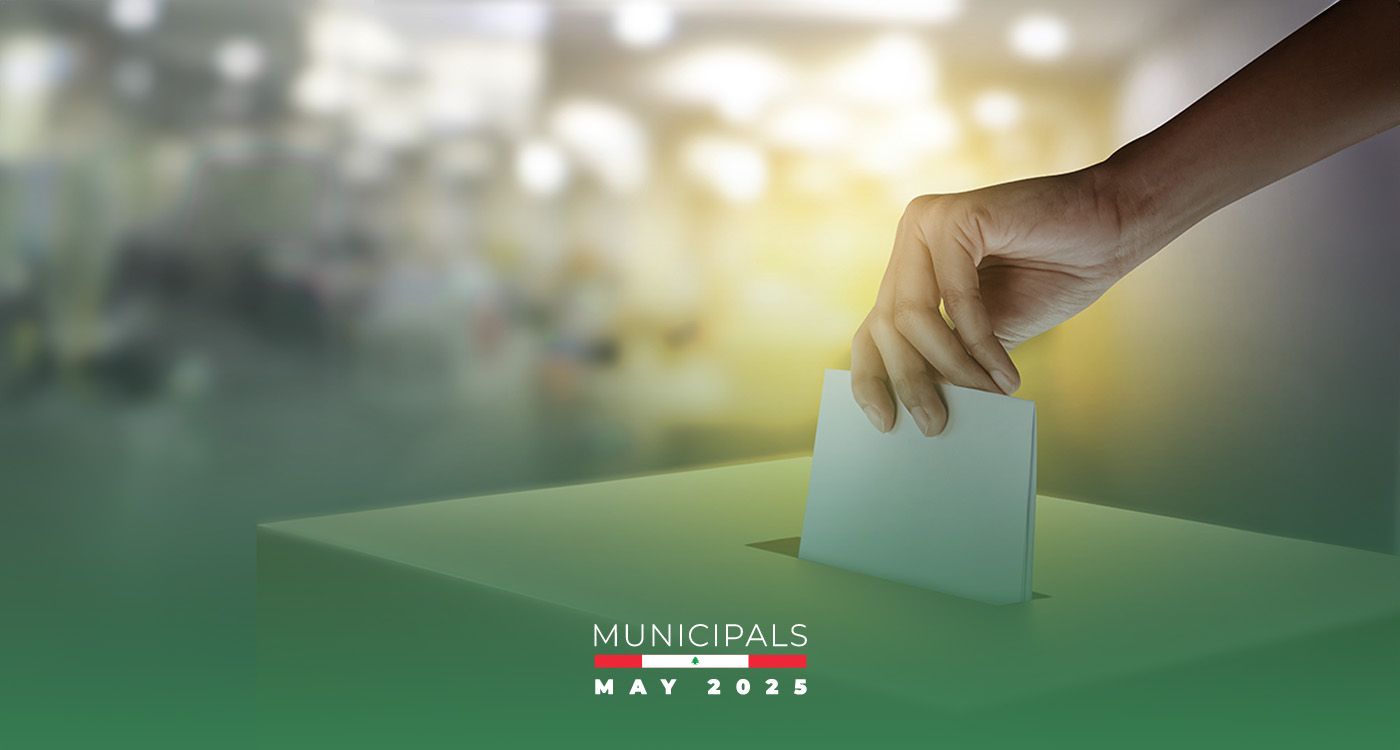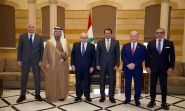
As Lebanon inches closer to its long-delayed municipal and mukhtar elections, just hours ahead of the mandated electoral silence set to begin before Sunday’s vote in Mount Lebanon, the mood across the country is one of cautious engagement.
The excitement of first-time voters stands in stark contrast with the deep-seated skepticism of older generations, many of whom have lost faith in the promise of democratic renewal. Yet, across this generational divide, a common refrain emerges: a yearning for an electoral system that is more inclusive, transparent and more attuned to the realities of local communities.
Postponed twice due to security and economic concerns, these elections are now scheduled to unfold over four consecutive weekends: May 4 in Mount Lebanon, May 11 in North Lebanon and Akkar, May 18 in Beirut, the Beqaa and Baalbeck-Hermel, and May 24 in South Lebanon and Nabatiyeh—the latter rescheduled to avoid conflicting with the anniversary of the 2000 “liberation of the South.”
‘I Want to Vote to Experience It’
For 21-year-old voters, this will be their first opportunity to cast a ballot. Despite enduring war and years of economic collapse, many young Lebanese remain eager to participate in shaping their country’s future.
“I want to vote to experience this moment. Maybe it won’t come again,” says Sophie, 25, from South Lebanon. Though determined, she’s uncertain whether she’ll be able to vote. Her village, like many in the south, was devastated by the recent conflict between Hezbollah and Israel. Despite a ceasefire since November 27, 2024, sporadic attacks continue.
Sarah, also from the south, won’t be voting, as her border village remains inaccessible.
In Beirut’s southern suburb of Haret Hreik, a Hezbollah stronghold, Ali, 21, is enthusiastic, “It’s a meaningful act and a national duty. After everything we’ve been through, it’s important to speak up.”
Maroun, 24, voting in Baabda, agrees, “It’s my way of showing I’m here and I have something to say.”
But not everyone shares their optimism. Noura, uninterested and unmoved, says simply, “There’s no particular reason. I just don’t want to vote.”
A Family Affair
For many Lebanese, voting is more than a civic duty, it's a family matter. Yves, for instance, will vote in Bzebdine, in the Baabda district, to support his uncle, who has served as mukhtar for two decades. Though he lives in Jbeil, he’s making the trip with his family. “I don’t know any of the other candidates,” he admits. “My uncle handles all our paperwork — he’s the go-to person for our whole family.”
Vera, a pharmacist in Achrafieh, shares a similar story. Now in her sixties, she’ll vote in Bikfaya, her husband’s hometown, in support of his cousin. Still, she laments that she can’t vote in Beit-Mery, where she actually lives.
Meanwhile, Hiba plans to vote for her father’s cousin, who is running for re-election in Choueifat el-Qobba. What swayed her was not political, but personal history. “She’s always helped with our administrative paperwork,” Hiba says.
Like many voters, Hiba admits to being confused by the process. “I was told I should use one or two slips, or mix candidates... I’m not sure what to do.”
Disillusioned Middle Generation
Disillusionment is running deep among voters in their 30s and 40s. For Jean-Pierre in Bikfaya, Lina in Ras Beirut and Tarek in Tripoli, casting a ballot no longer holds meaning. “It’s just a waste of time,” they say.
They point to an electoral system that feels rigged in advance, where individual voices carry little weight. They speak openly about “widespread corruption, entrenched clientelism and a clan-based political culture.”
Many also point to the lack of transparency, both in the voting process itself and in how municipal funds are managed.
Another sore point is the failure to implement decentralization, a key provision of the 1989 Taif Agreement that remains largely ignored. “As long as Lebanon isn’t a true state governed by law,” says Elie, “I won’t place any trust in the system.”
Toward a New Electoral System?
In Lebanon, few citizens are able to vote both in their place of residence and in their town of origin. Claudio, who lives in West Beqaa but commutes daily to Beirut for work, sees this disconnect as emblematic of a broader structural dysfunction.
Like him, many voters express frustration over being required to vote in ancestral villages far removed from their daily lives. The main demand is clear: to be able to vote where one actually lives. For many, this shift would improve local governance by holding elected officials accountable for the issues that truly affect residents, such as road maintenance, public lighting, water management, infrastructures, green spaces, schools, elderly services and municipal policing.
As the country approaches long-delayed municipal elections, expectations remain modest. For young voters, these elections carry cautious hope. For older generations, they mark yet another reminder of a system seen as rigid and unresponsive.
Still, one point of agreement has emerged: the need for deep electoral reform. Allowing citizens to vote in their place of residence is seen as a crucial step toward making politics more local, transparent and accountable.
More than a vote, it is a step toward reclaiming civic belonging, a call to revive a sense of citizenship that, for many Lebanese, feels long forgotten.




Comments